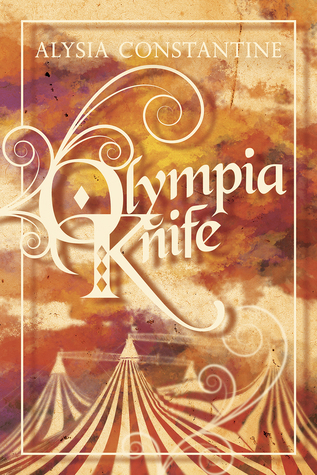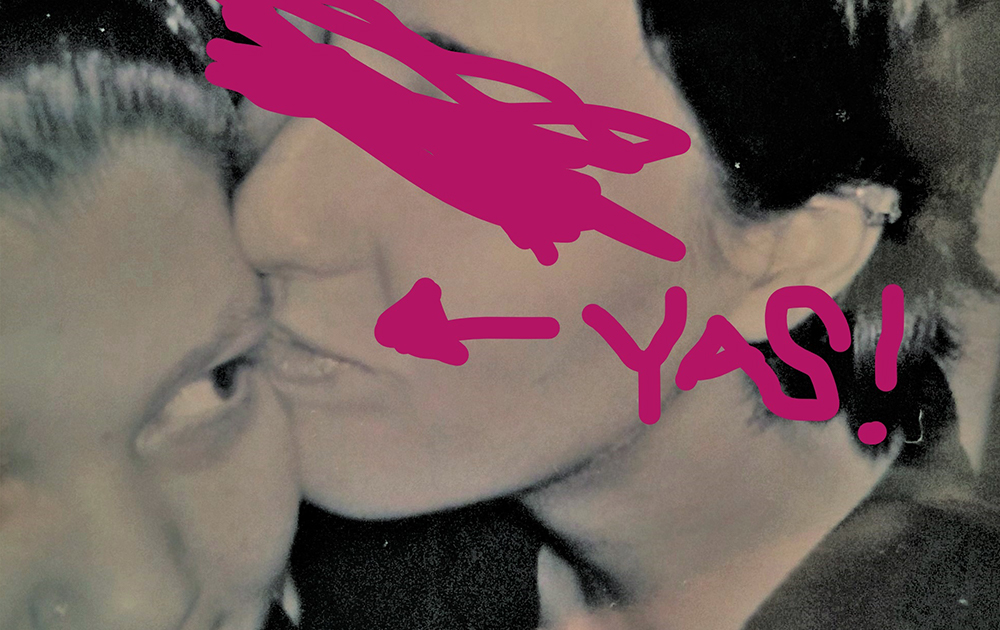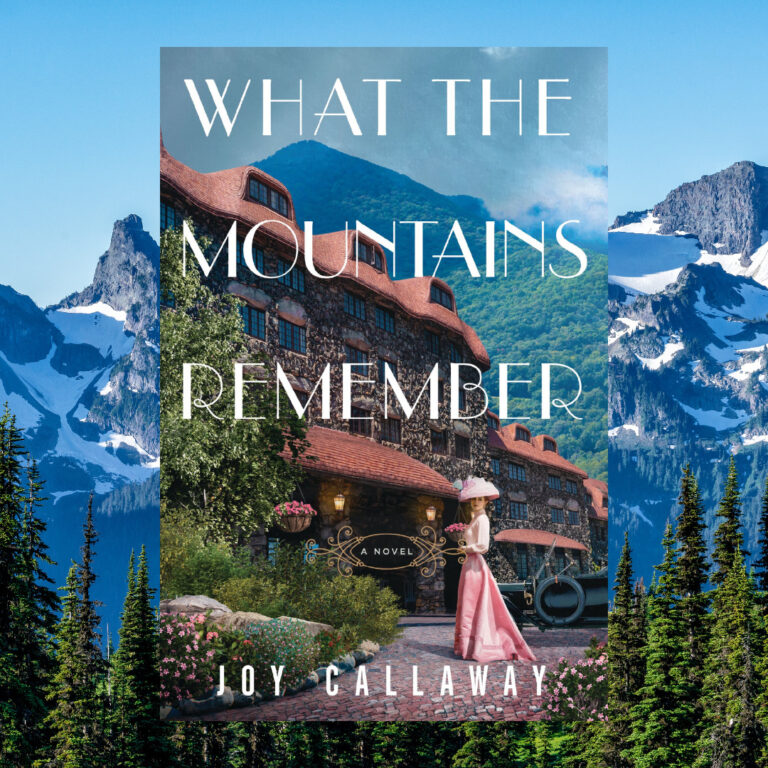There were people who thought that my first novel, Sweet (a magic-realist love story about two men), favored “literary” writing and didn’t have enough sex.
I can’t help but picture an Objectifier of Queers who’d rather fantasize about our sex lives than work for our equality. As a lesbian, I’ve seen lots of this. There was the guy at the bowling alley who offered my girlfriend and me a wad of cash to make out. Or the trucker who blasted his horn to get us to kiss. Or… well, you get it.
So I didn’t want my queer characters to have sex for the reader — not in Sweet, and not in my second novel, Olympia Knife. Not because I’m uncomfortable with sex or am too prudish to write about it, but because in order to protect my characters — and by extension real live queer folks, including me — from such Objectifiers of Queers, I’ve decided on a strategy of invisibility.

Now, please don’t misunderstand me. I’m not writing about the kind of sexualization I might choose (like dressing sexy to please a lover). I’m writing about sexualization without consent: objectification. It depends on making the person into an object, a non-speaking, emotionless thing I can fantasize about or use like a can opener or a shoe, exchangeable with other things, worth less than I am. Let me also emphasize that this is only when it occurs against my will. When it’s consensual, as it is sometimes, it’s not the same thing.
The extra problem for marginalized folks like women, queers, people of color and disabled folks is that it’s never an individual thing. For instance, when you sexualize a disabled person because of their disability and against their will, that act affects all of us disabled people. Since you’re thinking not of the individual but of the identity, then one disabled person works as well as the next.
In the past, this problem has been doubly difficult for a queer woman, since both of those terms (“queer” and “woman”), in many peoples’ minds, equal “sexual object.” This is also true of many people with multiple markers of marginalized identity—for instance, if someone is Black and disabled and a woman. If you want to fall down a sticky, dank rabbit hole, check out online porn sites for an example; often, their largest category is “lesbian,” followed by “Asian” and “black”.
But this essay isn’t meant to convince anyone of the constant objectification many of us face. It’s about my reaction as a writer. As I said, it’s an ugly dilemma: I can avoid sexuality entirely in order to avoid most objectification, or I can give the characters real sex lives and risk them being used for it. It’s a particularly tough choice for lesbians, since people assume both that we’re sexless and that we’re in it to titillate a heterosexual man: a frying pan/fire situation I’ve not yet figured out.
Recently I was talking with another queer novelist who said she writes sex scenes for her queer women exactly because of the sexless reputation. She also pointed out that the Objectifiers are probably not reading our books. She might be right, since books about queer women don’t sell well. Books about queer men sell better, but still not as well as books about straight people.
Still, you won’t find explicit sex in my novels. In Sweet, there’s one sex scene: two words, no talk of “members” or mechanics. In Olympia Knife, there’s a fade-to-even-blacker moment.
I’ve taken to heart what W. E. B DuBois wrote in The Souls of Black Folk about the usefulness of codes. It’s how Black folks could understand a different meaning from racist whites when hearing the same song or sentence. I know DuBois was writing about Blackness in the early 20th Century U.S., and that’s very different from writing about sexual identity now, but I still think a lesson can be learned.
It’s an argument for invisibility. As late 20th Century U.S. queers, we’ve worked for visibility: “We’re here! We’re queer! Get used to it!” Efforts are usually to make queerness visible to the mainstream, because we assume that will result in equality. But DuBois writes something different: Invisibility can be power. For one thing, it means freedom from the control and judgment of outsiders looking in.
I’m not interested in mainstream understanding or acceptance of me or any other queer person. I want equal treatment, sure, but recognizing my humanity should not depend upon whether you find me useful or even recognizable. “Knowing” is very close to “owning,” whether we’re speaking about facts or people. If you can’t see me clearly, you can’t objectify or own me.
It’s tiresome to be asked by mainstream folks to explain ourselves — like when white people demand PoC explain or prove racism to them instead of educating themselves, or when straight people want queer people to perform their queerness for edutainment. It’s yet another form of ownership, often masquerading as well-meaning curiosity or concern.
I don’t want to give away the ending of Olympia Knife, but let’s just say that Objectifiers looking for a simple, happy-ever-after ending might need to look elsewhere. As a queer writer, I don’t want to paper over the real conditions of queer lives just so Objectifiers can feel comfortable, because that usually means other readers (ones like me) feel silenced. The truth is, we queers are often blissfully happy, but we’re often in real danger, too. I resist Objectifiers’ demand for us to grin and bear it and just be “gay” in the word’s original sense. Especially in the current political climate, it makes no sense. When Judy sang, “Forget your troubles, c’mon, get happy,” most of us queers were drawn in because it was clearly ironic.
Irony is a pretty common strategy for queer resistance, by the way. And so is disappointing expectations in other ways, like disappointing the expectation that we’ll just be the Gay Best Friend and help a straight man choose a gift for his wife or a help a straight girl find new pair of cute heels. Refusing to play along with that can be a kind of resistance, a refusal to be used, and that can mean self-possession and freedom.












